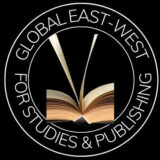GEW Essays & Reports
By GEW Reports & Analyses Team.
Contributions of the Report:
– The report provides a comprehensive understanding of the complexities of the Israeli-Palestinian conflict and the role of Arab states in its resolution.
– It explores the historical context and individual positions of Arab states, shedding light on their motivations and challenges in achieving a lasting ceasefire.
– The report emphasises the need for a nuanced understanding of the historical, political, economic, and social factors at play in order to find a sustainable path to peace.
– It highlights the importance of regional alliances, national interests, and engagement with the international community in addressing the obstacles to peace in the Israeli-Palestinian conflict.
– The report also discusses the economic challenges faced by countries like Somalia, which limit their ability to contribute to the resolution of the conflict.
Overall, the report contributes to a more informed and enlightened discourse on the Israeli-Palestinian conflict, aiming to pave the way for a brighter and more harmonious future for all those impacted by this enduring struggle.
Practical Implications of the Report:
– The report provides insights into the motivations, challenges, and perspectives of Arab states in the Israeli-Palestinian conflict, which can inform diplomatic efforts and negotiations.
– Understanding the historical, political, economic, and social factors in the conflict can help formulate more effective strategies for achieving a lasting ceasefire and resolution.
– Recognising the diverse concerns, interests, and challenges brought by each Arab state to the table can facilitate dialogue and collaboration among regional actors.
– Addressing socio-economic factors and alleviating grievances can contribute to stability and create an environment conducive to peace.
– The report highlights the need for regional alliances and engagement with the international community to overcome obstacles and work towards a sustainable path to peace.
Overall, the report’s practical implications lie in providing a comprehensive understanding of the complexities of the conflict and offering insights that can guide diplomatic efforts, inform policy decisions, and foster collaboration among stakeholders.
Results of the Report:
– The report provides insights into the motivations, challenges, and perspectives of Arab states in the Israeli-Palestinian conflict.
– It highlights the historical context and competing national aspirations that contribute to the complexity of the conflict.
– The report emphasises the importance of understanding the specific situations and motivations of each state involved in order to better comprehend the broader regional dynamics and obstacles to progress .
– The Israeli-Palestinian conflict is deeply rooted in historical narratives and competing national aspirations, making it a complex and challenging issue to resolve.
– Arab states play a significant role in the resolution of the conflict, with each state having its own motivations, challenges, and perspectives. Understanding these factors is crucial for diplomatic efforts.
– Transitional states like Tunisia face internal conflicts and economic instability, which limit their ability to actively engage in the peace-making process. It underscores the need for Tunisia to consolidate democratic institutions, resolve internal conflicts, and achieve economic stability to play a more active role in resolving the conflict .
– It highlights the role of larger regional powers like Algeria and Iraq in attempting to find a resolution to the Israeli-Palestinian conflict despite their own internal challenges.
– Larger regional powers like Algeria and Iraq have been involved in attempts to find a resolution to the conflict, but their own internal challenges, such as corruption and socioeconomic issues, have hindered their involvement.
– Oman, despite its limited influence and resources compared to larger regional powers, remains committed to neutrality diplomacy, and the promotion of dialogue in the pursuit of a peaceful resolution. The paper concludes by emphasising Oman’s commitment to diplomacy and the promotion of dialogue in the pursuit of a peaceful resolution.
– The report highlights the importance of addressing socioeconomic issues, alleviating grievances, and fostering regional alliances to overcome obstacles and work towards a sustainable path to peace.
– Overall, the paper provides a comprehensive examination of the complexities of the Israeli-Palestinian conflict and the role of Arab states in its resolution, offering valuable insights for diplomatic efforts and policy-making.
Contents

